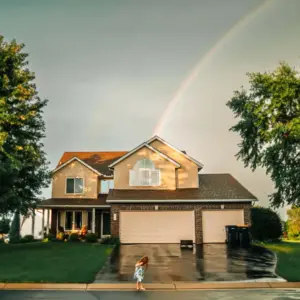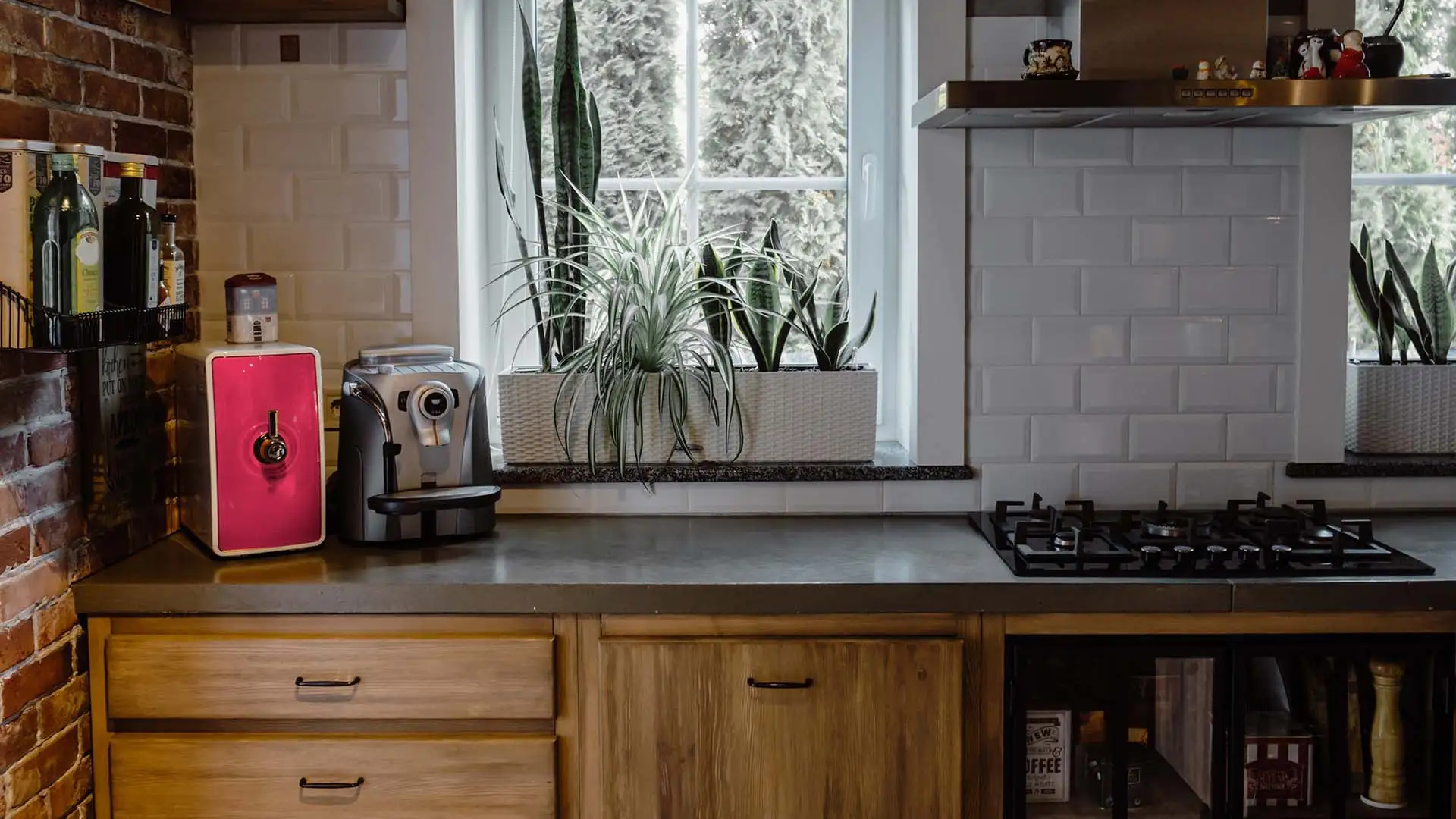Many people get confused when we talk about how much their home should be insured for. It’s got nothing to do with what you paid for the home, or what you could sell it for today.
What insurance companies want to estimate is what it would cost to rebuild the home if it were completely destroyed tomorrow. That value can be estimated by knowing the square footage of the home, what it’s made of, and the current cost of materials and labour in your area. Most home insurance policies include Guaranteed Replacement Cost coverage, so regardless of the valuation you agree upon with your broker, your home should be covered if the worst should happen.
Why can’t I insure my home for market value?
Judging by the number of questions people have on this subject, it seems there is still much confusion in this country between what the market value of a house is and its insurable value. The distinction lies in what is known as a home’s replacement cost, or what it costs to rebuild your home. This is the figure to focus on when looking for a home insurance policy that satisfies your needs. This is the value you are going to want to have professionally assessed. In the end, your property’s market value is largely irrelevant when it comes to insuring your home.
What is the difference between the market value and the replacement cost of a home?
The market value of a home is the amount of money a homebuyer would pay for your home on the open market, including both the structure and the land. Yet it also includes other more intangible factors such as the popularity of particular neighbourhoods and proximity to certain amenities. As such, this amount can fluctuate significantly depending on the real estate market at the time, and is not necessarily indicative of the cost of rebuilding the actual structure itself.
Replacement cost, on the other hand, is the amount it would cost to completely rebuild your home from the ground up should it incur extensive damage. Many people instinctively think that replacement cost would always be less than market value considering it’s not necessary to reacquire the land in order to rebuild, and for the majority of cases in Ontario this is true. But you also can’t assume that replacement cost is somehow a percentage of the market value. It’s not that simple. This is why replacement cost is the figure of focus in the insurance industry, and why the market value of your property is not important when buying insurance.
What factors determine replacement cost?
The replacement cost of a home is calculated by assessing the current construction costs of the particular dwelling, including material and labour. Certain factors have to be considered, such as how old the house is, what kind of foundation it has, and whether it has undergone any renovation that may add to its unique quality.
Think of it this way, if your house is completely destroyed, a rebuild would require you to hire an architect to design a new plan as well as a contractor to obtain the necessary permits for constructing a house from scratch, satisfying any new building codes that have been introduced since the original house was first built. For the most part, the realities of the construction industry require developers to buy and build en masse, creating entire subdivisions in one go. Imagine this same builder having to reconstruct just one home in a remote location, or what’s more, a location not easily accessible due to a density of other housing. Material and labour costs are bound to be higher. There are also costs that are not so readily apparent, such as:
- Demolition of the damaged structure
- Removal of debris, like fallen trees and telephone poles, after a devastating storm or flood
- The clearing of areas to allow for construction vehicles and equipment
Add to this any custom-made architectural features of the damaged building that require specialized craftsmen, or replacement materials for an old house that are no longer so easily obtainable, and the replacement cost of a home could, in certain rare circumstances, approach or even exceed the actual market value of the property as a whole.
How accurate does the replacement cost need to be?
It’s very important to have the replacement cost of your home reassessed every couple of years as the costs of a complete rebuild may have increased considerably in that time. There are two reasons why it’s important to keep this figure as accurate as possible in your insurance policy:
- If you don’t insure your home for at least 80% of its actual replacement cost, any claim you make on your policy will only be partially covered. For example, if your home’s real replacement value is $300,000 but your policy is only for $200,000, the insurer will only pay a maximum of 2/3 of any claim you make.
- If you overestimate the replacement value of your home, you’ll be paying a higher premium for coverage that you can’t use. If your listed replacement value in the policy is $300,000 and the rebuild costs $250,000, it’s not like you get a cheque for the extra $50,000.
How do I get an accurate assessment of replacement value?
There are a couple of ways to do this:
- Ask your insurer for a revaluation of the replacement cost. Your insurer can calculate this figure based on the information you provide and the current costs of labour and construction materials in your area.
- Hire your own professional appraiser. Having your home’s replacement cost assessed by a third party can provide much needed peace of mind, especially if you are considering changing your insurer.
Either way, it is important not to be cavalier about accurately assessing your home’s replacement cost. The last thing you want to deal with after a devastating incident like a flood or earthquake is coming up with a large sum of money to compensate for an underinsured home.
Is there a Way to Protect Myself From a Bad Estimate?
The cost of material and labour can increase significantly at times, especially if a large scale disaster such as a flood or hurricane rips through an entire town leaving these resources scarcer than usual. To protect against this eventuality, most home insurance policies include coverage for what is called Guaranteed Replacement Cost. If you’re not sure you have it, you might want to check. This coverage ensures that if your home is destroyed, it will be rebuilt as it was, regardless of what replacement value is listed on the policy.
What If the replacement cost changes mid-policy?
You should always inform your insurance company within 90 days of carrying out any renovations or extensions to your home so that the insurer can update your policy. The difference in premium won’t break the bank, and you won’t have any nasty surprises should an incident occur. Which will not only be a load off your own mind, but may also be a requirement for any mortgage lender you may be dealing with.
And what about my stuff?
It is also recommended that you keep an up to date inventory of your belongings to provide to your insurer whenever your policy is renewed. This goes towards a separate limit in your policy for what is called contents, and will help ensure you are not out-of-pocket when or if the time comes to make a claim.
In a world of increasing weather volatility and natural disasters, it is essential that you insure any family dwelling for the actual cost it would take to replace it. That’s the only way to ensure that you’ll be fully covered if something bad should happen.
Looking for home insurance?
Speak with a Mitch Insurance broker today to get a quote on Ontario home insurance. Learn more >
Call now
1-800-731-2228








There are many people who own houses, e.g., bungalows, that are insured for a much lower RC value than their fair market value. Thanks for the condescending article but we the consumers understand the difference between the two and that insurers don’t want to cover market value but we don’t understand how this serves the customers (which of course, is what the insurance industry is all about, isn’t it?). It all sounds like a rationalization by the insurance industry to avoid higher claim payouts vs. the comparatively incremental increase in premium that would flow from higher market-based (rather than RC) valuations. In other words, they wouldn’t it be able to price it in a way that would be feasible to the market, i.e., that consumers would actually buy and where insurers would be able to count on their on-going fat ROE.
Hi, thanks for sharing your perspective and concerns! We appreciate your engagement and understand there’s often confusion surrounding repair cost (RC) value versus fair market value.
When you buy a home, you are paying for both the building and the land on which it sits. Insurance is for repairing or rebuilding the physical dwelling. So, the RC to rebuild your home if it was a total loss (say, in a fire) would be to replace the building only at today’s construction costs. A return on investment/market value is not guaranteed, and the home that was damaged is not always necessarily a total loss. A home post-fire can be repaired. If it’s completely lost, it can be rebuilt – that market value isn’t completely lost (so there’s nothing to claim.) TLDR; fair market value is what you can sell your house (and the land) for on the open market, which changes based on market conditions, whereas RC is what you would fix the house for. That’s where the difference is and why the insurance company uses the rebuild cost rather than what the house and land would sell for on the open market.
We appreciate your insights. The insurance industry, like any other, is subject to scrutiny, so we aim to provide clarity and help homeowners make more informed decisions. If you have further questions, feel free to reach out.
I understand the difference. My issue is where can I find insurance that is based on market value OR just covers the bank loan?
I bought the house in a rural town in PA for 150K couple years ago. Kind of far from my job but it’s what I could afford. It doesn’t have a pantry, laundry room or even closets, but rebuilding costs are suddenly now estimated to be over 700K increasing my insurance policy by more than what I can afford. Annual premium is 2 months of my net salary as if I don’t have the mortgage to pay, taxes, food, car insurance, or other bills!
I don’t care to rebuild at this point, I just want to stay compliant to keep my mortgage/house without selling myself on the corner.
Honestly, insurance is only going to cover rebuilding if one of the 2 or 3 things on the policy happens. If one of those things were to happen, I’ll take my loss and be homeless as long as the mortgage gets paid off.
Why can’t I find the insurance I NEED. They’re pushing me to be homeless now while my house is still standing! I just want market value (200K) OR just enough to cover the bank. Does this kind of insurance exist?!
And I have shopped around a lot! I even switched companies only for them to increase it right after so now I’ve paid out the exact same amount had I just stayed. I worked so hard and had a moment to breathe before they found I “need” more coverage. I’m finding no release from this insanity. We’re not allowed to use insurance but they’re taking advantage because it’s required. So what would you say to someone who understands the difference, but doesn’t care for rebuilding?
Thanks
Hi Donna,
From your comment about PA, I suspect you’re located in the U.S. We’re a Canadian brokerage, so we don’t have details on your state’s insurance.
From a Canadian POV, when we quote a home we have to complete a construction rebuild evaluator, which tells us how much it costs to rebuild the home. Homes must be insured to 100% of this evaluation. Most insurance companies, at least in Canada, do not allow for homes to be insured for lower than the rebuild cost, but some companies offer a “no obligation to rebuild” so if there’s a total loss you can take the cash settlement instead.
You can also raise your deductible, and instead of having a comprehensive policy you can go to a named perils policy (if your lender allows it). Again, these are Canadian-oriented responses, so the specifics may vary. We recommend talking to your agent.